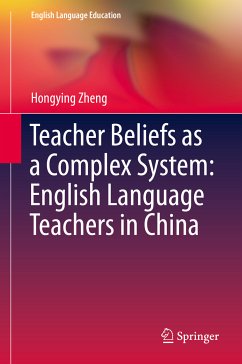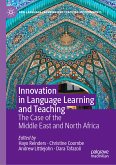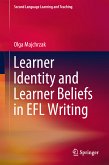This is the first study to present complexity theory in a narrative context of education, exploring the non-linear and unpredictable features of the relationship between the teachers' beliefs and practices. Integrating complexity theory with interpretivist, ecological and sociocultural perspectives, this book contributes to the research agenda by providing a systematic framework for examining teacher beliefs as a whole, and examining the extent to which western theory may be applied to Chinese educational contexts.
Dieser Download kann aus rechtlichen Gründen nur mit Rechnungsadresse in A, B, BG, CY, CZ, D, DK, EW, E, FIN, F, GR, HR, H, IRL, I, LT, L, LR, M, NL, PL, P, R, S, SLO, SK ausgeliefert werden.









